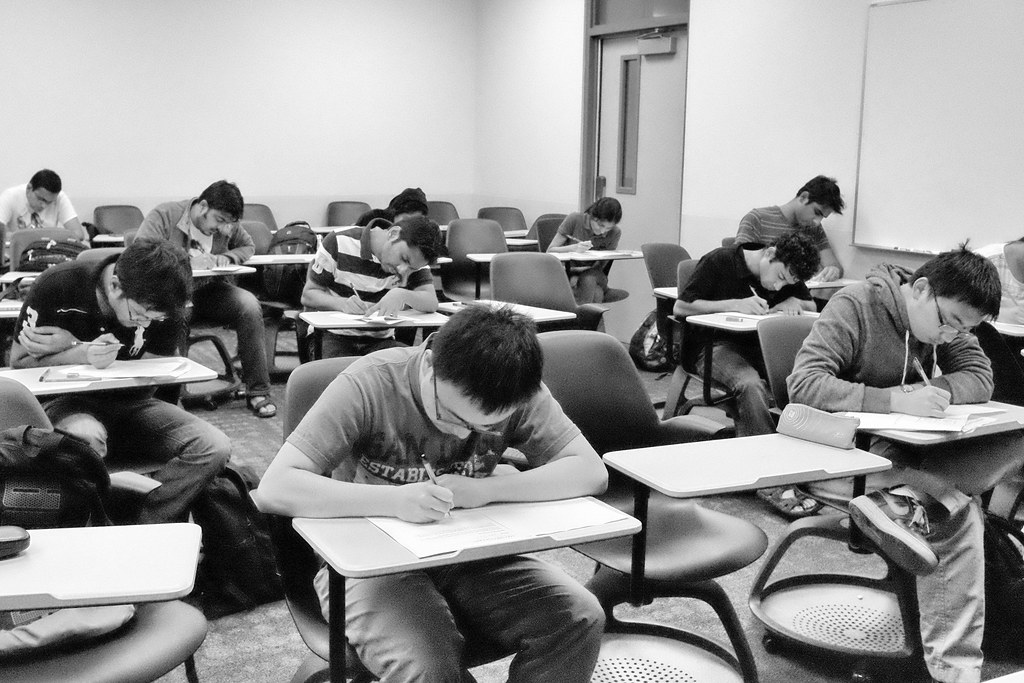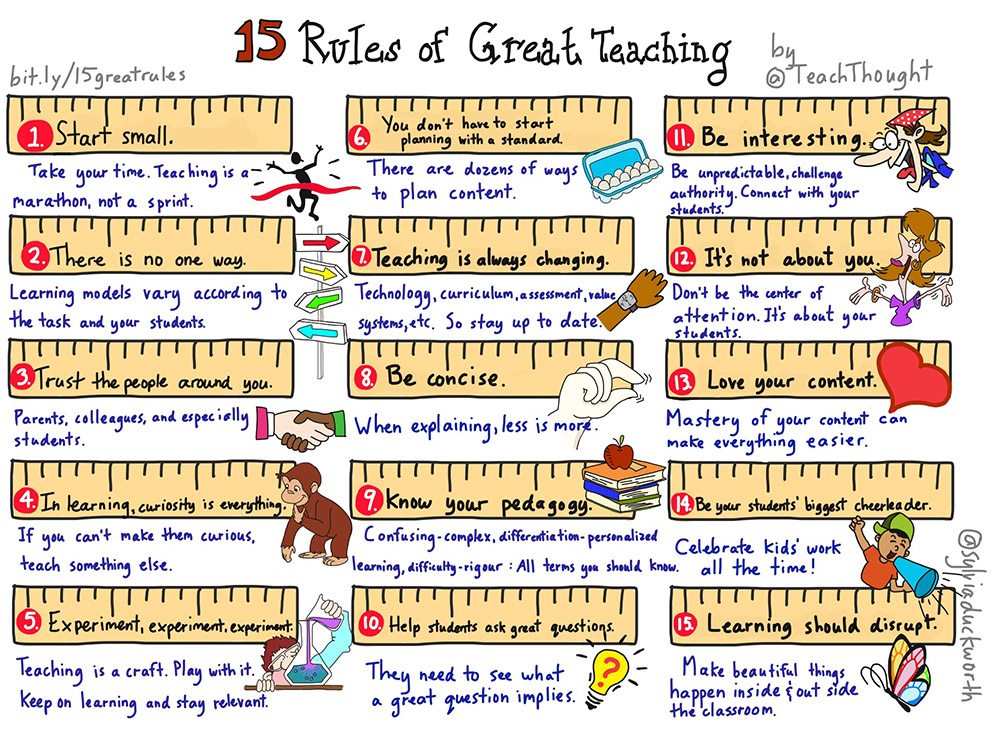One of the charged topics within my school and within broader education is the final exam. Its proponents usually make two main arguments as to why exams are a good thing. The first argument is that a final exam forces students to look back, relearn and consolidate knowledge from the course. The second, at least at the secondary level, is that it prepares kids for the exams they will have in college. If my department chair was writing this post, this is what he would say.
I'm not a fan of finals; but I'm not terribly opposed to them either within the current paradigm. I do think there are better summative assessments and I also believe a well-crafted final that emphasizes themes, ideas, and big-picture thinking isn't the worst thing in the world. Yet, I am giving a final project, not a final exam for my course.
My problem, as I said, really isn't with the exam. It is the paradigm it is embedded within. It is the teacher-centered, content coverage model that bothers me. Little agency lies with the student and ultimately very little of the knowledge the student is responsible for "sticks" anyway. It gets into short-term memory and is forgotten within weeks.
Good PBL assignments and assessments are "stickier" because they put the learner in control. The best "final" at my school is a project for the traditional and very demanding science course. But to my mind, the final is brilliant. It is a project, not an exam. Students are tasked with finding connections to themes discussed in this integrated science course in pieces of art and famous pictures. It challenges kids to go deeper and there is no silly "guess what's in my head" that too many teachers play with the final exam.
What should good finals look like? In my International Relations class, I gave students a choice of options- choice is always important- and while most students are going to do a more traditional, though tech-based assignment (they will use Adobe Spark Page to embed video, text and visuals) a couple of students are doing more open-ended projects. One student is reviving Amnesty International at my school and serving as the leader of the club as a final project. You know what? This student may not be forced to remember some of the concepts she learned this year, but she will be applying those concepts as she writes letters next year.
Finally, a plea: As you give your finals, please don't try to trick kids. Too many teachers think they are being clever when they try to fool their students. That's educational malpractice. Make it about thinking and not memorization, except when absolutely necessary. And yes, I do think there are some things that a student just has to memorize- such as irregular verbs in Spanish.
The more I teach, the more I realize how much I don't know. This blog explores pedagogy and ed-tech.
Monday, May 29, 2017
Monday, May 22, 2017
Rules of Great Teaching
Again I have come across Sylvia Duckworth's rules of teaching. I like all of them. My five favorites are rules 2, 5, 7, 9 and 13. Both pedagogy and content knowledge are important. I'd add a couple more to her list.
16. Collect feedback constantly. A good teacher should constantly be gauging both formally and informally how it is going in the class.
17. Let students play expert. The most authentic tasks asks students to be expert and share that expertise.
What are your favorites on her list and what would you add to the list?
16. Collect feedback constantly. A good teacher should constantly be gauging both formally and informally how it is going in the class.
17. Let students play expert. The most authentic tasks asks students to be expert and share that expertise.
What are your favorites on her list and what would you add to the list?
Wednesday, May 17, 2017
The Kids Are Alright
I'm trying to get a student-led tech team up and running at my school. Though inspired by the students at Burlington High School and the amazing work done by their teachers, unlike the students at Burlington where the Genius Bar is actually a class for credit, my goal is to eventually make my group a club.
We met last week for a couple of days- more explanation below- and I gave them quite an ambitious list of tasks:
These 13 boys (sigh, I couldn't get a few girls) worked diligently for the two days and they got quite a bit accomplished.
It is amazing how much work motivated students accomplish. Thanks to Naim, Devin, Jerry, Wexler, Kai, Sylvan, Timin, Josh, Teo, Ian, Hugh, Pierce and Jack. You got a lot done.
We met last week for a couple of days- more explanation below- and I gave them quite an ambitious list of tasks:
- Paint a Green Screen- check.
- Build an awesometable -check
- Make video for teachers of tech tip kids wish their teachers knew-check.
- build a survey for the student body. check
- Create a how to video for DoInk Green Screen. Check
- Test run Time-Line tool maker. check
- Test run a word press blog vs. a blogger blog to help me, the tech integration specialist decide the blogging platform for next year. Check. Here is the wordpress blog they made for themselves and that we hope to share with the student community. Embedded within the Blog is a terrific awesometbable.
These 13 boys (sigh, I couldn't get a few girls) worked diligently for the two days and they got quite a bit accomplished.
It is amazing how much work motivated students accomplish. Thanks to Naim, Devin, Jerry, Wexler, Kai, Sylvan, Timin, Josh, Teo, Ian, Hugh, Pierce and Jack. You got a lot done.
Friday, May 5, 2017
Power and Privilege
I'm a mid-career teacher and truth be told, at 26 years in the field, I'm closer to being finished than I am to my start. At the start of my career, I planned to teach for a few years and then pursue a law degree. I wasn't gung-ho on being a lawyer, but I figured that's what I was supposed to do with the degree from the college I went to.

As a young teacher who knew nothing about teaching, I immediately assumed power. I seized the means of control. It's what a teacher was supposed to do, right? I gave permission for when students could stand and sit, speak and stay silent, and even when they could use the bathroom. Without a second thought, I grabbed this mantle of power.
I found I loved teaching- maybe I loved the power trip!- Nah, being more generous with myself, I stayed in teaching because I loved the kids. I loved coaching and I loved teaching history. Notice by the way, I didn't say I loved teaching students history. I was a lecturer. I learned a ton about history and I have no clue if my students really learned anything. Also in my first couple of years, I didn't have the best "control" over my students which caused me to seize the power ever more tightly.
Committed to giving this teaching thing a real shot, I went to graduate school. There I read Freire, bell hooks, Nell Noddings and Vigotsky. It became apparent to me that my teaching was reinforcing all sorts of societal norms which I was opposed to in my own life. hooks called this the "banking system of education" based on the belief that recalling information and "regurgitating it represented gaining knowledge that could be deposited, stored and used at a later date."
Teachers, many whom are good progressives, keenly aware of the hidden and not so hidden structures of power in our world - who consistently point these systems out when teaching literature and history! - reinforce these same systems of privilege and power in their teaching. They'd chafe at this assertion, but it is true. We reinforce the dominant paradigm even while we claim to oppose it. I've come across some Birkenstock wearing, vegan, natural fiber wearing, queer teachers who are profoundly traditional in their teaching approach. Is Freire wrong in his claim that the teacher as single authority needs to be re-adjusted if we want to create advocates for social justice? I think it is essential.
I teach a lot of rich kids who have or will have access to power. I feel my actions and methods will be more important than my words in creating people who will advocate for social and economic justice.
As a young teacher who knew nothing about teaching, I immediately assumed power. I seized the means of control. It's what a teacher was supposed to do, right? I gave permission for when students could stand and sit, speak and stay silent, and even when they could use the bathroom. Without a second thought, I grabbed this mantle of power.
I found I loved teaching- maybe I loved the power trip!- Nah, being more generous with myself, I stayed in teaching because I loved the kids. I loved coaching and I loved teaching history. Notice by the way, I didn't say I loved teaching students history. I was a lecturer. I learned a ton about history and I have no clue if my students really learned anything. Also in my first couple of years, I didn't have the best "control" over my students which caused me to seize the power ever more tightly.
Committed to giving this teaching thing a real shot, I went to graduate school. There I read Freire, bell hooks, Nell Noddings and Vigotsky. It became apparent to me that my teaching was reinforcing all sorts of societal norms which I was opposed to in my own life. hooks called this the "banking system of education" based on the belief that recalling information and "regurgitating it represented gaining knowledge that could be deposited, stored and used at a later date."
Teachers, many whom are good progressives, keenly aware of the hidden and not so hidden structures of power in our world - who consistently point these systems out when teaching literature and history! - reinforce these same systems of privilege and power in their teaching. They'd chafe at this assertion, but it is true. We reinforce the dominant paradigm even while we claim to oppose it. I've come across some Birkenstock wearing, vegan, natural fiber wearing, queer teachers who are profoundly traditional in their teaching approach. Is Freire wrong in his claim that the teacher as single authority needs to be re-adjusted if we want to create advocates for social justice? I think it is essential.
I teach a lot of rich kids who have or will have access to power. I feel my actions and methods will be more important than my words in creating people who will advocate for social and economic justice.
Subscribe to:
Posts (Atom)
Featured Post
Prezi Video
Remember Prezi? Once upon a time it was all rage for students. I see very few students use this tool any longer. Prezi is back, though, wit...
-
I again assigned my high school seniors an end of semester 20% time project . I've written before about this idea and my uses of ...
-
Hmm.... It has quickly become conventional wisdom that social media and technology use in teens has led to an increase in anxiety and de...
-
Remember Prezi? Once upon a time it was all rage for students. I see very few students use this tool any longer. Prezi is back, though, wit...


